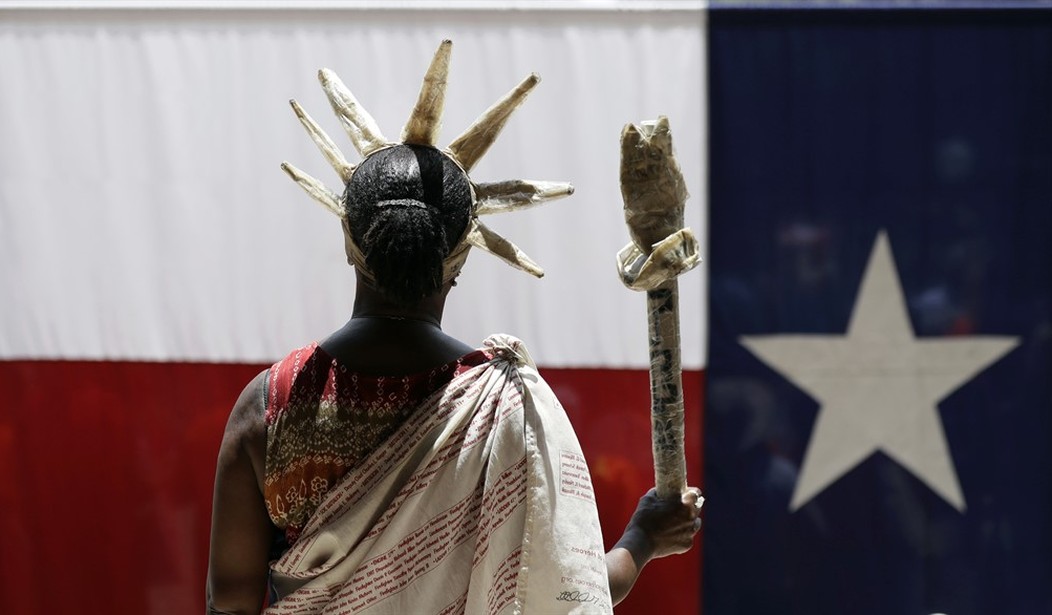Given the fractured state of the American population these days, particularly in light of the ongoing culture wars, a new survey from the Associated Press reached a decidedly surprising conclusion. The title of the announcement sums it up nicely, declaring that "Americans still agree on most core American values." My initial, jaded response was, 'You could have fooled me.' Whether you're looking at debates in the halls of Congress or between voters on social media, it's easy to reach the conclusion that the majority of Americans can barely agree on anything these days. And yet the survey results show almost exactly the opposite if you're only looking at overarching values painted in broad strokes. There are still exceptions to be sure, but it's apparently possible that there are still underlying beliefs in fundamental values of good and evil that most of us can accept. Perhaps there is hope for America's dusty vision of the future after all.
Despite the country’s deep political polarization, most Americans share many core beliefs about what it means to be an American, according to a new poll.
The poll from The Associated Press-NORC Center for Public Affairs Research found that about 9 in 10 U.S. adults say the right to vote, the right to equal protection under the law and the right to privacy are extremely important or very important to the United States’ identity as a nation. The survey also found that 84% feel the same way about the freedom of religion.
The results, which included perspectives on a number of different freedoms and rights, have only small variances between Republicans and Democrats except on the right to bear arms, which Republicans are more likely to see as core to the nation’s identity. The overall findings are striking because they come at a time of extreme partisanship when political agreements seem rare and concerns are heightened over the potential for violence during a volatile presidential election year.
At the risk of repeating myself, I would first note that the rights being listed in this survey are described very broadly. It's easy to believe that many individual respondents from both sides of the political aisle would say that they agree with these ideas, but they would almost certainly add a number of caveats after saying "yes."
We can start with the question of whether or not people have a right to vote. 90% of Americans claim that such a right exists, but there are many cracks and fissures in that underlying bedrock belief. We don't allow children to vote because if we did, free ice cream would be mandated across the country. There is an ongoing debate over what the proper age of adulthood should be for everything, including voting. Republicans primarily view that right as being restricted to citizens while many Democrats want to hand illegal migrants a voter registration form the moment they crawl under the razor wire and step foot on U.S. soil. Some states remove voting rights from felons convicted of certain types of crimes while others do not. More examples of these differences of opinion exist.
A similarly large majority claim to believe that everyone is entitled to equal protection under the law. But other polls strongly suggest that many people on the left don't believe that is true for certain individuals, particularly if they have orange hair and a surname that rhymes with "bump." The same goes for the right to privacy. There is little doubt that we all believe that our right to privacy should be honored. But at the same time, many are keenly interested in finding out what politicians and celebrities are up to behind closed doors.
Then there is the almost equally popular freedom of religion. The first caveat that most atheists and agnostics would apply is that they are happy to agree with this principle provided it also comes with freedom from religion. (Fair enough.) Yet we've been learning some hard lessons since October 7th suggesting that many on the left don't think your religious freedom is quite as rock-solid if you happen to be Jewish. Progressives would turn around and argue that conservatives look upon the Muslim faith with a negative view. Let's just say that that one is complicated.
The wheels fall off of the bipartisanship wagon when it comes to the right to keep and bear arms. That belief is firmly embedded on the right for the most part, but a swelling number of leftists want to see that right degraded or curtailed. What the Founders may have thought about the matter is apparently not a concern for them. The point here is that this AP poll paints a rosy picture, and perhaps that was their intention. But many Americans obviously have different definitions of what constitutes an absolute right and where the line between good and evil is drawn.








Join the conversation as a VIP Member